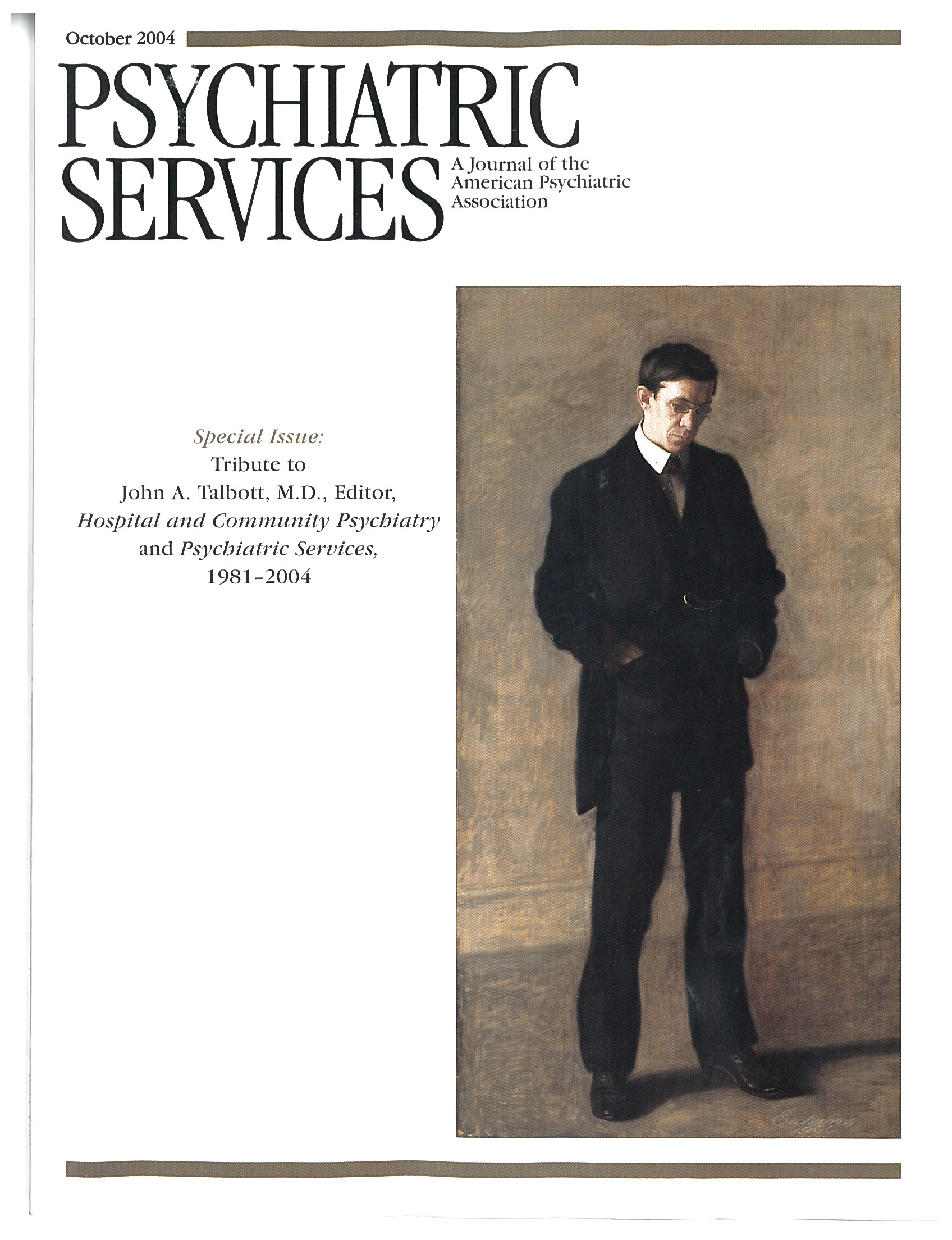To the Editor: I met John Talbott when we got to Columbia for medical school. He appeared to be a preppy, a WASP, superficial, spoiled, and self-satisfied. The first hint that I was wrong was his marriage to Susan, a woman whose strength and intelligence were apparent. The second hint emerged as we worked on research as residents and I saw insight and discipline. His passion was displayed when we advocated for the seriously impaired mentally ill population in regard to inadequate services, homelessness, and the need for research. We published our first paper together and then our first book, and I was happy to follow John's leadership as APA formed a committee on the chronic mental patient.
Over a lifetime of alliance in professional life and cordial friendship, his energy, intelligence, and dedication to those who need us most has never faltered. John has been a force for excellence in academic psychiatry, as a department chair, in psychiatric politics, and as an editor. Of his many assets, optimism and distrust of unnecessary compromise have been a shining beacon for many who feel that psychiatry must focus on those who need us most. Boundless energy, great people skills, and tenacity as an advocate make him a leader of substance, not self-gratification. When a classmate died and we needed someone to develop a scholarship, he was there. When the field needed direction to pursue its deepest calling, he was there. I'm proud to be his classmate, coauthor, and friend.
Dr. Meyerson is clinical professor of psychiatry at New York University School of Medicine in New York City.



